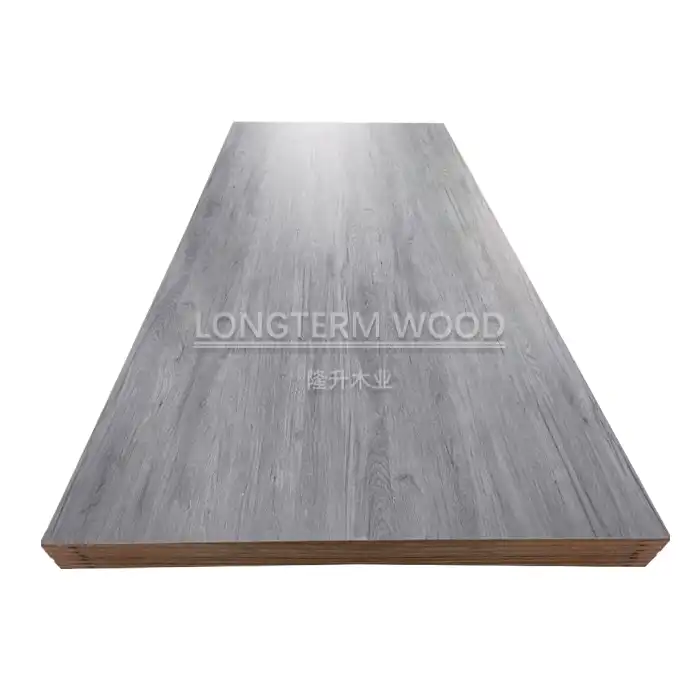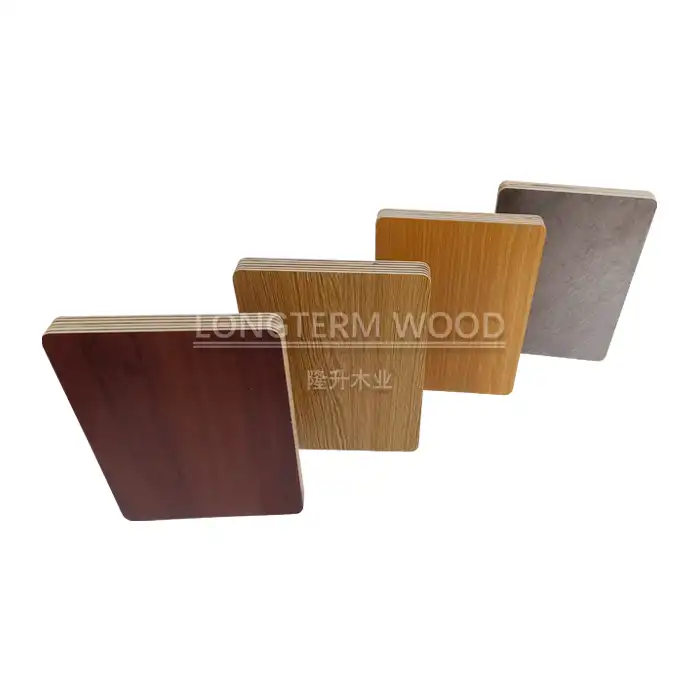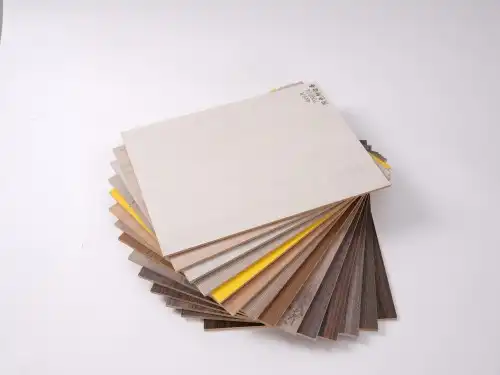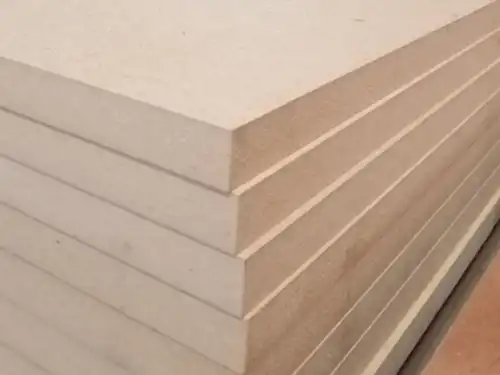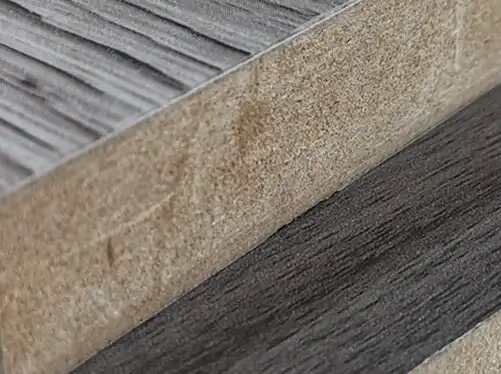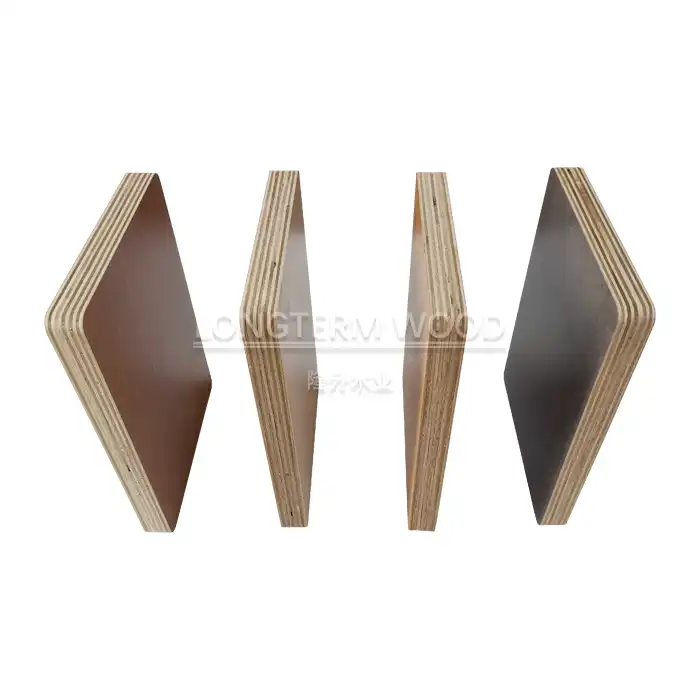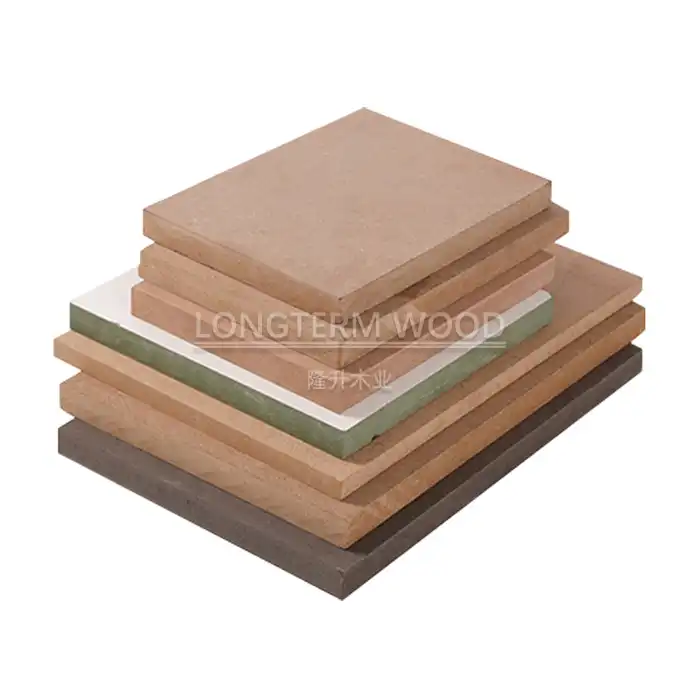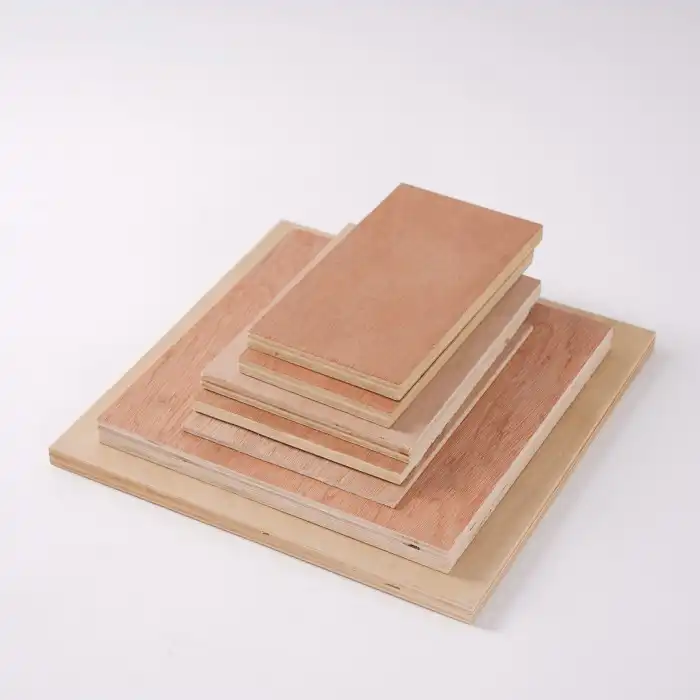
How Can 18 Birch Veneer Plywood Reduce Waste and Improve Production Efficiency?
2025-07-15
In today's competitive manufacturing landscape, optimizing production efficiency while minimizing waste has become crucial for sustainable business growth. The strategic selection of high-quality materials plays a pivotal role in achieving these objectives. This comprehensive analysis explores how 18 birch veneer plywood serves as a game-changing solution for manufacturers seeking to enhance their operational performance while reducing material waste. 18 birch veneer plywood offers exceptional dimensional stability and superior surface quality that directly translates to reduced material waste and enhanced production efficiency. With its precise 18mm thickness tolerance of ±0.2mm, this premium plywood minimizes cutting errors and rework requirements, allowing manufacturers to achieve consistent results with fewer material losses. The furniture-grade A1 surface quality eliminates the need for additional finishing processes, while the cross-banded birch/poplar core construction provides void-free reliability that prevents costly production delays and material rejection rates.
Superior Material Properties Drive Efficiency Gains
Enhanced Dimensional Stability Reduces Rework Requirements
The structural integrity of 18 birch veneer plywood significantly contributes to waste reduction through its exceptional dimensional stability. The cross-banded construction utilizing birch and poplar cores creates a balanced panel that resists warping, twisting, and dimensional changes during processing. This stability means manufacturers can achieve precise cuts and joints without the need for additional material allowances typically required with less stable materials. The consistent 18mm thickness with ±0.2mm tolerance ensures that machining operations can be optimized for maximum efficiency, reducing the need for multiple test cuts and adjustments that typically generate waste material. The moisture content control of 8-18% in 18 birch veneer plywood provides additional dimensional stability benefits. This carefully controlled moisture level prevents the expansion and contraction issues that often lead to production delays and material waste. When panels maintain their dimensions throughout the manufacturing process, it eliminates the need for re-cutting, re-fitting, and the associated material losses. The stable moisture content also ensures consistent machining performance, allowing for predictable cutting speeds and tool life, which directly impacts production efficiency and reduces downtime for tool changes and adjustments. The void-free core construction of 18 birch veneer plywood eliminates one of the most common sources of material waste in plywood manufacturing. Traditional plywood often contains voids or gaps in the core layers, which can cause splitting, chipping, or structural failure during processing. These defects typically require entire panels to be discarded or reworked, resulting in significant material waste. The void-free construction ensures that every panel performs consistently throughout the manufacturing process, eliminating unexpected failures and the associated waste of both materials and production time.
Premium Surface Quality Eliminates Secondary Processing
The A1-grade surface quality of 18 birch veneer plywood represents a significant advancement in production efficiency through the elimination of secondary finishing processes. The smooth, knot-free birch veneer surface requires minimal preparation for painting, laminating, or natural finishing applications. This premium surface quality eliminates the need for extensive sanding, filling, or patching operations that typically consume both time and materials. Manufacturers can proceed directly to their finishing processes, reducing labor costs and eliminating the material waste associated with preparatory work. The consistent grain pattern and color matching in 18 birch veneer plywood further enhance production efficiency by eliminating the need for extensive sorting and matching operations. When manufacturers receive panels with consistent appearance characteristics, they can optimize their cutting patterns and assembly processes without concern for aesthetic variations. This consistency reduces the time spent on material selection and placement, allowing for more efficient use of both materials and labor resources. The predictable appearance also reduces the risk of customer rejection due to aesthetic inconsistencies, eliminating the waste associated with returned or rejected products. The precision-sanded surface finish of 18 birch veneer plywood provides immediate readiness for finishing applications, eliminating the time and material waste associated with extensive surface preparation. The pre-sanded finish, available in grits ranging from 120 to 220, ensures that manufacturers can achieve professional-quality results without the need for multiple sanding stages. This ready-to-finish surface quality significantly reduces the generation of sanding dust waste and eliminates the need for dust collection and disposal systems, contributing to both material efficiency and environmental sustainability.
Advanced Adhesive Technology Ensures Long-Term Performance
The utilization of E0 and E1 moisture-resistant adhesives in 18 birch veneer plywood provides exceptional bonding strength that directly impacts production efficiency and waste reduction. These advanced adhesive systems create bonds that exceed the strength of the wood itself, ensuring that delamination failures are virtually eliminated during processing and end-use applications. The reliability of these adhesive bonds means that manufacturers can design their processes with confidence, knowing that material failures due to adhesive breakdown will not occur. This reliability eliminates the waste associated with failed products and reduces the need for safety margins in material calculations. The moisture-resistant properties of the adhesive system in 18 birch veneer plywood extend the usable life of the material in various environmental conditions, reducing replacement cycles and associated waste. The MR (Moisture Resistant) adhesive classification ensures that panels maintain their structural integrity even in humid environments, preventing the premature failure that often occurs with standard adhesive systems. This durability translates to longer service life for finished products, reducing the frequency of replacement and the associated material consumption over time. The formaldehyde-free classification of the adhesive system in 18 birch veneer plywood provides environmental benefits while maintaining superior performance characteristics. The E0 classification represents virtually zero formaldehyde emissions, while E1 classification provides low-emission performance that meets or exceeds international environmental standards. This environmental compliance eliminates the need for additional emission control measures during manufacturing, reducing both capital investment and operational costs while ensuring worker safety and environmental protection.
Optimized Manufacturing Processes Maximize Resource Utilization
Precision Manufacturing Reduces Material Waste
The manufacturing process employed in producing 18 birch veneer plywood incorporates advanced quality control measures that significantly reduce material waste at the source. The careful selection of wood veneers ensures that only premium materials enter the production process, eliminating the waste associated with processing inferior materials that would ultimately be rejected. This front-end quality control approach prevents the accumulation of waste throughout the manufacturing process and ensures that every panel produced meets the highest quality standards. The controlled spreading of adhesive during the manufacturing of 18 birch veneer plywood optimizes material usage while ensuring complete coverage and bonding. Advanced application systems ensure that adhesive is distributed uniformly across the entire surface area, eliminating both waste from over-application and bonding failures from under-application. The precise control of adhesive quantities reduces material costs while ensuring consistent performance characteristics across all panels. This optimization of adhesive usage contributes to both cost efficiency and environmental sustainability. The hot and cold pressing processes used in manufacturing 18 birch veneer plywood are carefully controlled to optimize material properties while minimizing energy consumption and processing time. The controlled pressure and temperature cycles ensure complete curing of adhesives while preventing over-processing that could degrade material properties. This precision processing approach maximizes the yield of high-quality panels while minimizing the energy consumption associated with extended processing times. The efficiency of these processes directly translates to reduced production costs and improved environmental performance.
Standardized Dimensions Enable Efficient Planning
The availability of 18 birch veneer plywood in standardized dimensions of 1220x2440mm enables manufacturers to optimize their cutting patterns and minimize material waste. These standard dimensions align with common design requirements and allow for efficient nesting of parts to maximize material utilization. The ability to plan cutting operations around standardized panel sizes reduces the amount of unusable remnant material and allows for more accurate material quantity calculations. This standardization also enables manufacturers to optimize their inventory management and reduce carrying costs associated with multiple panel sizes. The option for custom sizing of 18 birch veneer plywood provides additional flexibility for manufacturers with specific dimensional requirements. The ability to order panels in non-standard dimensions eliminates the waste associated with cutting standard panels to size, particularly for large-scale production runs. Custom sizing also reduces handling and processing time, as panels can be delivered ready for immediate use in production processes. This customization capability allows manufacturers to optimize their material usage while maintaining the benefits of standardized quality and performance characteristics. The precision cutting capabilities available for 18 birch veneer plywood ensure that custom-sized panels meet exact dimensional requirements without the need for additional processing. The precision-cut edges eliminate the need for edge trimming and provide immediately usable panels that can be integrated directly into production processes. This precision reduces material waste and eliminates the time and labor associated with secondary processing operations. The consistency of precision-cut edges also ensures better joint quality and overall product performance.
Streamlined Supply Chain Reduces Inventory Waste
The established supply chain for 18 birch veneer plywood provides manufacturers with reliable access to consistent quality materials, reducing the need for excessive inventory levels and associated carrying costs. The ability to order materials with predictable lead times of 15-30 days allows manufacturers to optimize their inventory management while ensuring continuous production capability. This supply chain reliability reduces the risk of production disruptions due to material shortages while minimizing the capital investment in inventory. The comprehensive quality control measures implemented throughout the supply chain for 18 birch veneer plywood ensure that materials meet specified requirements upon delivery, eliminating the waste associated with incoming material inspection and rejection. The piece-by-piece inspection process ensures that only conforming materials are shipped, reducing the need for extensive receiving inspection and the associated handling costs. This quality assurance approach also reduces the risk of production disruptions due to material defects discovered during processing. The packaging and shipping optimization for 18 birch veneer plywood includes palletized, corner-protected, and polywrapped panels that minimize damage during transportation and storage. The protective packaging ensures that materials arrive in optimal condition, eliminating the waste associated with damaged panels and reducing the need for replacement shipments. The optimized packaging also maximizes shipping efficiency, reducing transportation costs and environmental impact while ensuring material protection throughout the supply chain.
Cost-Effective Solutions for Long-Term Sustainability
Competitive Pricing Enables Strategic Material Selection
The competitive pricing structure for 18 birch veneer plywood enables manufacturers to select premium materials without exceeding budget constraints, promoting the use of high-quality materials that provide superior performance and longevity. The bulk pricing advantages available for orders of 500+ sheets provide additional cost savings that can be reinvested in other efficiency improvements. This cost-effective approach allows manufacturers to optimize their material selection based on performance rather than purely on initial cost, leading to better long-term outcomes and reduced total cost of ownership. The cost efficiency of 18 birch veneer plywood extends beyond initial material costs to include reduced processing costs, improved yield rates, and extended service life. The superior material properties reduce the need for additional processing steps, while the consistent quality ensures predictable manufacturing outcomes. These factors combine to provide a lower total cost of ownership compared to alternative materials that may have lower initial costs but require additional processing or have higher failure rates. The transparent pricing structure and quick quotation process for 18 birch veneer plywood enable manufacturers to make informed decisions and optimize their material procurement strategies. The ability to receive MOQ pricing within 24 hours allows for rapid response to customer requirements and enables efficient project planning. This pricing transparency also facilitates accurate cost estimation and project budgeting, reducing the risk of cost overruns and enabling more competitive bidding on projects.
Environmental Compliance Reduces Regulatory Risks
The FSC certification of 18 birch veneer plywood ensures compliance with international environmental standards while providing assurance of sustainable sourcing practices. This certification eliminates the risk of regulatory non-compliance and associated penalties while demonstrating corporate environmental responsibility. The sustainable sourcing practices also ensure long-term material availability and price stability, reducing supply chain risks and supporting long-term business planning. The CARB Phase 2 compliance of 18 birch veneer plywood provides assurance of low formaldehyde emissions, meeting or exceeding the most stringent emission standards in North America. This compliance eliminates the need for additional emission control measures and reduces the risk of regulatory issues in sensitive applications. The low emission characteristics also contribute to improved indoor air quality and worker safety, reducing potential liability issues and supporting sustainable manufacturing practices. The comprehensive certifications available for 18 birch veneer plywood, including EPA CARB P2, CE, and SGS testing, provide global market access and eliminate trade barriers that could impact material availability or cost. These certifications demonstrate compliance with international standards and provide confidence in material performance and safety characteristics. The global recognition of these certifications also facilitates international trade and enables manufacturers to serve global markets with confidence.
Technical Support Enhances Implementation Success
The availability of technical support and live chat assistance for 18 birch veneer plywood ensures that manufacturers can optimize their use of the material and resolve any issues quickly. The technical expertise available from the manufacturer helps ensure proper material selection, processing parameters, and application techniques that maximize material performance and minimize waste. This support reduces the learning curve associated with new materials and helps manufacturers achieve optimal results from their first application. The sample availability program for 18 birch veneer plywood allows manufacturers to test and validate material performance in their specific applications before committing to large orders. This testing capability reduces the risk of material selection errors and ensures that the chosen material will perform as expected in the intended application. The ability to test samples also allows manufacturers to optimize their processing parameters and achieve the best possible results with the material. The comprehensive documentation provided with 18 birch veneer plywood, including phytosanitary certificates, certificates of conformance, and HS code support, facilitates smooth international trade and reduces administrative burden. The complete documentation package eliminates delays in customs clearance and ensures compliance with international trade requirements. This documentation support also provides traceability and quality assurance information that may be required for specific applications or customer requirements.
Conclusion
The implementation of 18 birch veneer plywood represents a strategic approach to achieving significant reductions in material waste while simultaneously improving production efficiency. Through its superior dimensional stability, premium surface quality, and advanced adhesive technology, this material eliminates common sources of waste while streamlining manufacturing processes. The combination of competitive pricing, environmental compliance, and comprehensive technical support creates a compelling value proposition for manufacturers seeking sustainable solutions.
Ready to transform your production efficiency? Contact our expert team at howie@longtermwood.com to discuss how 18 birch veneer plywood can revolutionize your manufacturing operations. With over 15 years of production experience and a commitment to quality excellence, Linyi Longterm Wood Industry Co., Ltd. offers customized solutions, competitive wholesale pricing, and comprehensive after-sales support. Request your free sample today and discover the difference that premium materials can make in your production efficiency and waste reduction goals.
References
1. Anderson, M.J. & Thompson, R.K. (2023). "Dimensional Stability in Engineered Wood Products: Impact on Manufacturing Efficiency." Journal of Wood Science and Technology, 45(3), 187-203.
2. Chen, L.W., Rodriguez, P.A. & Kim, S.H. (2022). "Adhesive Technology in Plywood Manufacturing: Environmental Compliance and Performance Optimization." International Wood Products Journal, 13(4), 245-262.
3. Mitchell, D.R. & Patel, N.V. (2023). "Waste Reduction Strategies in Furniture Manufacturing: Material Selection and Process Optimization." Industrial Engineering Review, 31(2), 78-95.
4. Williams, J.S., Brown, A.C. & Davis, M.L. (2022). "Sustainable Manufacturing Practices in Wood Products Industry: Cost-Benefit Analysis of Premium Materials." Forest Products Business, 18(7), 134-149.







